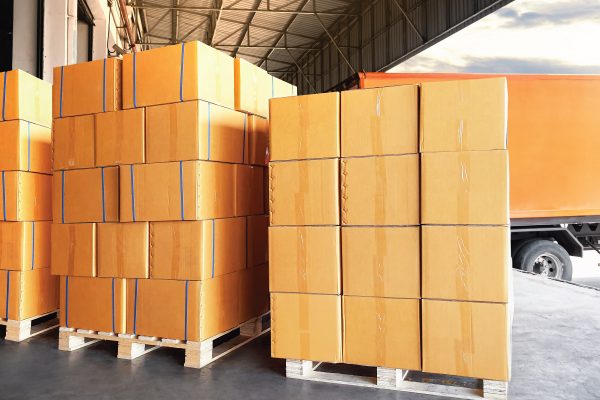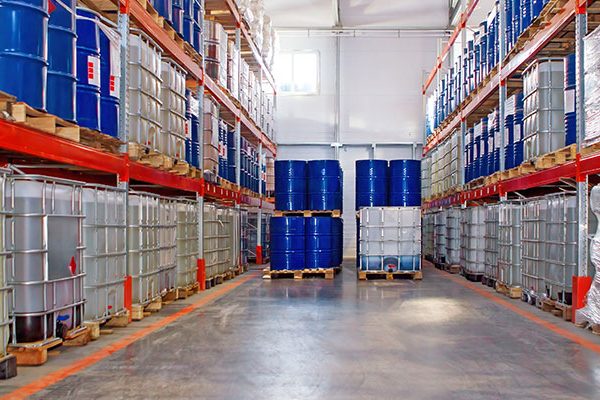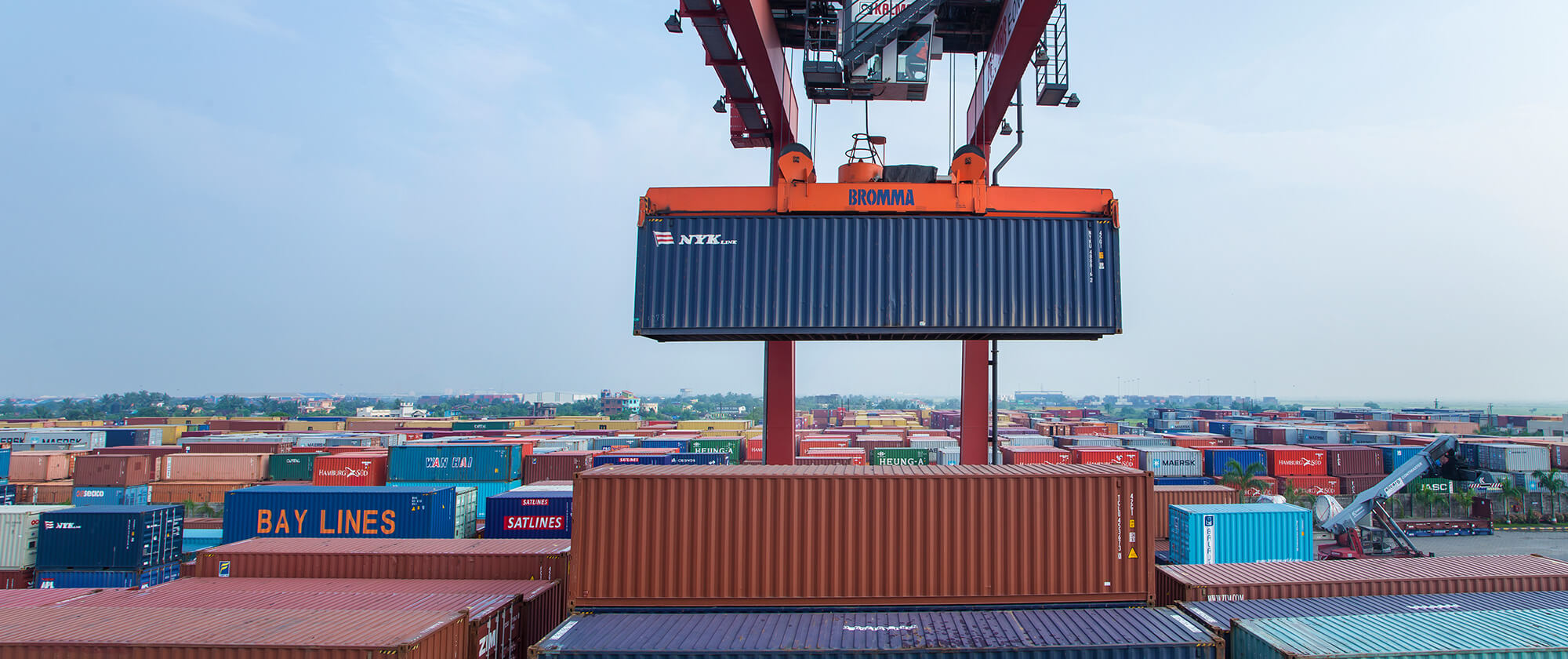As the world grapples with the COVID-19 outbreak and its impact on global trade and economy, in India, Container Freight Stations (CFS) have emerged as the buffer, the defenders who are playing a key role in keeping cargo moving.
When it comes to keeping the wheels of global trade moving, it has got to be a collaborative effort. Right from the shipping lines, freight forwarders and port authorities to Container Freight Stations (CFS), transportation companies and warehouses, each link in the ecosystem needs to play its role effectively.
But what happens when an unprecedented crisis like the COVID-19 outbreak causes a disruption?
To begin with it leads to challenges that have not been anticipated before. And resolving them calls for innovation and collaboration at a level that’s much greater and closer than what has hitherto been the norm.
With lockdowns still continuing in many parts of the world and some regions slowly easing restrictions to gradually begin recovery, there have been stark changes in the pattern of demand and supply for essential and non-essential goods and cargo. The entire shipping and logistics industry has had to step up and come together to keep cargo moving.
Challenges that CFS’s are grappling with
In India, ports and CFS’s form a part of the Essential Services Act and thus continue to be operational. Due to space constraints at Indian ports, cargo moves to CFS’s that offer various services like imports and exports handling, bonded and non-bonded warehousing, documentation, deliveries, and more.
Around three years ago, the Indian government introduced the Direct Port Delivery (DPD) programme that allowed businesses to move cargo directly from the ports to their destination. This was done to make delivery faster, more cost-effective and to improve the ranking of ease of doing business. There were talks that the CFS’s are not required at all. But during this COVID-19 crisis, CFS’s came in as saviours evacuating all those containers which the importers didn’t pick up from ports. The CFS’s avoided the ports from getting congested. They made sure that trade kept moving by ensuring faster evacuation of containers from the port.
CFS’s continue to facilitate trade in the current situation too. As efforts are on to prevent the spread of COVID-19, India has been on a complete lockdown with only essential services being permitted to operate. This has had an impact on the imports and exports in the country. Playing a key role in the seamless transportation of goods and cargo, CFS’s are facing a unique set of challenges.
Due to paucity of space at the ports, import containers are being evacuated from ports to CFS’s. However, long distance trucking activities are slowing down due state borders getting locked down. As a result, non-availability of truck drivers is leading to import deliveries slowing down. In order to prevent a situation where CFS’s run out of storage space and come to a standstill, storage and process innovation has become the need of the hour. There is pressure on the CFS’s to mitigate this, because if they come to a standstill, ports will get choked and this will cause a further decline in EXIM trade.
Exports, on the other hand, are facing an adverse impact due to factories that have shut down owing to non-availability of labour. Due to this slowdown in exports, ships are staring at the possibility of going without export containers after off-loading their imports. This is causing ship owners to consider not docking into Indian ports. It could also lead to an increase in freight rates for imports to cover-up for their export leg cost.
Caught in a crossfire
As an essential service, a CFS cannot afford to completely shut down. And to keep facilities running, staff members need to be on the site. Not all of them can work remotely. In view of various health and safety restrictions, CFS’s have had to analyse and change some of their processes to ensure seamless services even with minimal staff. In addition, providing masks and sanitizers, regularly disinfecting the facilities, carrying out temperature checks for staff members and visitors and other measures have been implemented to ensure safety. CFS’s continue to incur huge amount of costs to keep up with their regular functioning as well as additional COVID-19 prevention measures.
With customers not being able to take deliveries, the turnaround time has increased leading to decrease in revenues. Also, existing customers who are not in a position to pay the ground rentals and other charges accrued have been demanding waivers.
Caught in the crossfire between incurring costs to keep operations running and facing non-payments, CFS’s across India still power on.
Their role has been instrumental while tackling the current crisis. They have continuously evacuated containers from the port – despite no deliveries – to keep the ports functional. Though there are space constraints at the CFS’s too, they have navigated their way by implementing changes to storage methods and processes but making sure that ports don’t get choked. Had this not been the case, EXIM trade would have come to a halt.
“A point to note is that the CFS’s, through their association, have come forward with a gesture to waive-off ground rent charges for a certain period of time, while requesting all importers to evacuate containers from the CFS’s, as the CFS’s are expected to get choked soon”, says Adarsh Hegde, Joint Managing Director, Allcargo Logistics.
“At all of Allcargo’s CFS’s that form India’s widest CFS-ICD network, import, export, transportation and handling services continue uninterrupted. We are also equipped with operators available to offer loaded delivery for import containers. Our sales and customer care teams are working remotely to enable smooth completion of documentation, invoice generation, and other processes”, he continues.
Emerging stronger from the crisis
A top priority right now would be for CFS’s to interact more closely with their customers as well as with shipping lines and come up with solutions that will ensure business continuity for all stakeholders. It is only if business continues that it will slowly begin to pick up and recover.
As CFS’s take steps to mitigate financial challenges, taking an end-to-end approach to planning and implementing strategies is what will hold them in good stead.
It is also important to relook at capacity building. The current situation is certainly an eye-opening reminder of dependencies in the logistics industry. It is important for CFS’s to take lessons from current challenges like transportation non-availability, slowdown in imports and exports for example, and modify contingency plans to accommodate for situations like these, should they reoccur in future.
With digitisation fast emerging as a ‘new normal’ and a major chunk of the global workforce operating remotely, using digital tools and technology to stay connected and collaborate will prove to be a key to success. At various CFS facilities, with minimal staff on-ground, the safety and security of the cargo as well as processes like checking and examining goods, invoicing, documentation formalities, etc. will need to be handled with much more reliance on digitising and optimising operations.
The COVID-19 crisis has highlighted the need for flexible and tech-enabled warehousing solutions. Stock-keeping and warehouse management systems must be adaptable to meet such situations, especially while handling emergency and medical supplies.
Conclusion
The business landscape is now constantly evolving and very dynamic. Going forward, new business models will come into play as the CFS’s along with all other logistics industry stakeholders get a grip on COVID-19’s full impact on their own and their customers’ businesses.
An innovative approach, optimising operations digitally and relying on flexible and scalable business continuity and contingency plans seem to the best way ahead.















